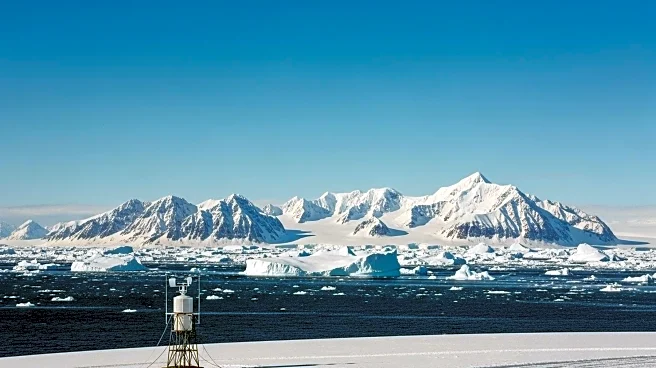What's Happening?
A group of over 40 researchers has raised concerns about geoengineering techniques aimed at manipulating the Arctic and Antarctic environments to combat climate change. These methods, such as artificially thickening sea-ice or releasing reflective particles into the atmosphere, are considered dangerous and potentially ineffective. The scientists argue that these techniques could cause severe environmental damage and distract from efforts to reduce carbon emissions, which is the only proven method to limit global warming. The assessment, published in the journal Frontiers in Science, reviewed several geoengineering ideas and found them lacking in feasibility and posing significant environmental risks.
Why It's Important?
The debate over geoengineering highlights the complexities of addressing climate change. While some view these techniques as potential emergency measures, the majority consensus is that they could exacerbate environmental issues and geopolitical tensions, particularly in fragile polar regions. The focus on geoengineering could divert attention and resources from reducing carbon emissions, which remains the most effective strategy for mitigating climate change. The potential for increased geopolitical tensions arises from the lack of clear governance in polar regions, where unilateral actions by countries could lead to conflicts.
What's Next?
The researchers advocate for prioritizing decarbonization and polar research over geoengineering projects. They emphasize the need for international cooperation and governance to address climate change effectively. Further research into the feasibility and risks of geoengineering is necessary to make informed decisions about its potential role in climate policy. The UK government has announced funding for geoengineering research, but there are no plans to deploy these techniques on a large scale.
Beyond the Headlines
Geoengineering raises ethical and legal questions about human intervention in natural systems. The potential for unintended consequences and the challenge of global governance make it a contentious issue. The illusion of an alternative to reducing emissions could hinder progress in achieving net zero goals.










